Search Results
Showing results 101 to 120 of 148

Can Nutrients in Water Cause Harm?
Source Institutions
In this water pollution activity, learners create pond water cultures and investigate the effects of adding chemicals or natural nutrients.
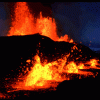
Chocolate Lava
Source Institutions
In this yummy earth science activity (page 5 of the PDF), learners use fudge to learn about different kinds of lava.
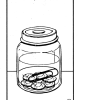
Reaction: Yes or No?
Source Institutions
In this activity, learners mix ingredients in a plastic bag, and then identify three characteristics of a chemical reaction: production of heat, color change, and production of a gas.

What Does Spit Do?
Source Institutions
Some animals can swallow food whole, but humans have to chew. In this activity, learners will investigate what saliva does chemically to food before we even swallow.

Reading DNA
Source Institutions
In this activity, learners use edible models of the DNA molecule to transcribe an mRNA sequence, and then translate it into a protein.
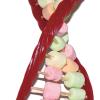
Have Your DNA and Eat It Too
Source Institutions
In this activity, learners build edible models of DNA, while learning basic DNA structure and the rules of base pairing.
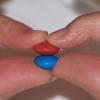
Survival of the Fittest: Battling Beetles
Source Institutions
This guided inquiry three-part activity engages learners in thinking about the mechanism of natural selection through data collection and pattern recognition.

Rhythm Painting
Source Institutions
In this activity, early learners create paintings by making music and rhythm. Learners place paper in cans, add paint-soaked beans (or pebbles) and put the tops on.
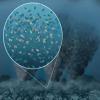
Searching for Life
Source Institutions
In this activity, learners discuss how life is defined and conduct a simple experiment, looking for signs of life in three different “soil” samples.

The Water Cycle
Source Institutions
Did you know that the water we use today is the same water found on Earth millions of years ago? The Earth constantly uses and recycles water in a process called the water cycle.

Radar Mapping: What's in the Box?
Source Institutions
In this activity, learners mimic remote sensing. Learners use a stick to measure the distance to a "planet surface" they cannot see, and create their own map of the landscape.
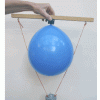
Springs and Stomachs
Source Institutions
In this demonstration, learners investigate mass, gravity, and acceleration by dropping a wooden bar with a balloon attached to its underside, a mass suspended from it by rubber bands, and a sharp-poi
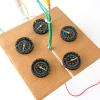
Circles of Magnetism I
Source Institutions
In this activity related to magnetism and electricity, learners create a magnetic field that's stronger than the Earth's magnetic field.
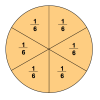
Number Sense and Computation: To Half or Half Not
Source Institutions
In this math lesson, learners use slices of bread and geoboards to explore several ways to divide a rectangle in half. Learners also identify equivalent fractions that represent one-half.
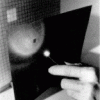
Inverse Square Law
Source Institutions
In this math activity related to light, learners explore why a light, such as a candle or a streetlight, looks dimmer the farther away from it we get.

Protein Bracelets
Source Institutions
In this activity, learners use beads, which represent amino acids, to create protein bracelets. Learners examine the relationship between amino acids and proteins.

Seafood Surgery
Source Institutions
In this hands-on activity, learners discover the similarities and differences between a vertebrate and invertebrate by dissecting a perch and a crawfish.

Chocolate Chip Cookie Constellations
Source Institutions
This chocolate chip cookie recipe includes templates for baking night sky constellations of the season right on top! Two templates are included, one for 9pm mid-April, and one for 10pm mid-July.
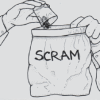
Scram or Freeze
Source Institutions
In this outdoor activity and animal-role-play game, learners discover and uncover the hidden world of "cryptozoa"—organisms such as spiders, salamanders and slugs that live under objects, like rocks a
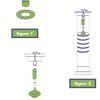
Roller Coaster Design
Source Institutions
This activity (on page 3 of the PDF under GPS: Roller Coaster Design Activity) is a full inquiry investigation into g-force and acceleration.
